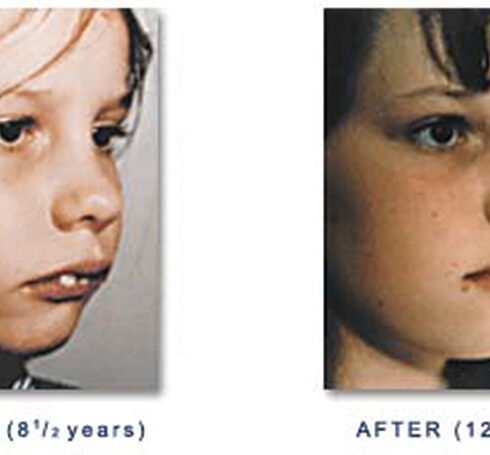The Secret to a Healthy Smile: Essential Oral Care Tips
Taking care of your teeth and gums plays a big role in your overall health. A strong set of teeth supports digestion, clear speech, and confidence in social settings. Without proper maintenance, plaque buildup can lead to cavities and gum disease.
In Kansas City, MO, residents have access to advanced dental services that help keep their teeth in top shape. Regular checkups, cleanings, and preventive measures contribute to long-term oral health. Whether you’re looking for routine cleaning or specialized treatments, local experts can provide solutions tailored to your needs.
Here’s how you can maintain your oral health:
Brushing the Right Way
Brushing properly helps remove plaque and food particles that stick to your teeth throughout the day. Using a soft-bristle toothbrush can help you avoid damage to your enamel and gums. A fluoride-based toothpaste strengthens your teeth and protects against decay.
Make sure to brush at least twice daily, spending about two minutes each time. Short, circular motions work best to clean all surfaces without putting too much pressure on your gums. Also, bacteria can build up on the bristles. Therefore, replace your toothbrush every couple of months.
Finding Reliable Dental Services
Regular visits to a trusted provider help prevent serious dental issues. They offer everything from preventive care to advanced treatments, helping residents maintain strong teeth. Whether you need a basic cleaning, a filling, or a cosmetic procedure, experienced professionals in the region provide customized options.
Modern practices focus on patient comfort, using the latest technology for precise and efficient treatments. Clinics serving KC area offer emergency services, making it easier for people to get help when unexpected issues arise. Cosmetic and restorative treatments are also available for individuals seeking long-term improvements. By choosing a provider that prioritizes preventive care, patients can avoid more complex dental problems down the road.
The Importance of Flossing
Even with proper brushing, small food particles and plaque can hide between teeth. Flossing clears out these areas, reducing the risk of cavities and gum inflammation.
Daily flossing lowers the chance of gum disease, which can lead to bleeding, swelling, and even tooth loss. Using a gentle sawing motion helps remove debris without harming your gums. If traditional floss feels uncomfortable, water flossers or floss picks are great alternatives.
Mouthwash: A Helpful Addition to Your Routine
Mouthwash isn’t just for fresh breath. It plays a role in reducing bacteria and plaque buildup. Look for an antibacterial rinse to target germs that cause gum disease. Some formulas also contain fluoride to strengthen enamel.
If alcohol-based rinses cause irritation, opt for an alcohol-free version. Using mouthwash after brushing and flossing provides an extra layer of protection. Swishing for about 30 seconds allows the ingredients to reach all parts of your mouth.
Limiting Sugary and Acidic Foods
The foods and drinks you consume affect your teeth more than you might realize. Sugary snacks feed harmful bacteria, increasing the risk of decay. Acidic beverages, like soda and citrus juices, erode enamel over time.
Limiting these items helps keep your teeth strong. Instead, opt for water, dairy products, and fiber-rich foods that promote saliva production. If you do consume something sugary or acidic, rinsing with water afterward can help minimize damage.
Drinking More Water
Water plays a key role in keeping teeth and gums clean throughout the day. Unlike sugary or acidic drinks, water helps rinse away food particles and bacteria without causing damage. It also keeps saliva production steady, which is important for neutralizing acids and protecting enamel.
Drinking fluoridated water provides added protection by strengthening teeth and reducing the risk of cavities. Staying hydrated also prevents dry mouth, a condition that can lead to discomfort and increased bacterial growth. Keeping a reusable water bottle nearby makes it easier to drink enough throughout the day.
Recognizing Early Signs of Dental Problems
Spotting issues early can prevent more serious complications later. Sensitivity, bleeding gums, or frequent bad breath may indicate an underlying problem. Pain while chewing or swelling around the gums could be signs of an infection.
Routine checkups help detect concerns before they worsen. Professional cleanings remove buildup that brushing and flossing might miss. If any discomfort or unusual changes occur, it’s best to seek care as soon as possible to avoid more extensive treatment.
Avoiding Harmful Oral Habits
Certain habits can weaken or damage teeth over time. Biting on ice, nails, or hard objects increases the risk of cracks and chips. Using teeth to open packaging may seem convenient, but it can cause fractures that require professional treatment.
Smoking and tobacco use not only stain teeth but also raise the chances of gum disease and other long-term conditions. Grinding or clenching teeth, often caused by stress, can wear down enamel. A custom mouthguard may help protect against damage, especially during sleep.
Teeth Whitening: Safe and Effective Options
A brighter smile is possible through both at-home and professional whitening methods. Whitening toothpaste and strips can remove surface stains, but overuse may lead to sensitivity.
For longer-lasting results, professional treatments use stronger yet controlled whitening agents. These options are customized for each person, reducing the risk of irritation. Before starting any whitening process, it’s best to get a consultation to ensure that the method is safe and suitable.
Teaching Good Habits at an Early Age
Introducing proper techniques from a young age helps establish lifelong routines. Making brushing and flossing a daily habit encourages consistency. Using fun toothbrush designs and mild-flavored toothpaste makes the experience more enjoyable.
Setting an example by practicing good hygiene yourself reinforces its importance. Regular visits to a provider create familiarity and reduce anxiety about checkups. Encouraging healthy eating choices also contributes to stronger teeth and gums over time.
Keeping teeth in good condition doesn’t require complicated routines. Brushing, flossing, and limiting sugary foods are simple steps that make a big difference. Drinking water, recognizing early warning signs, and avoiding harmful habits also contribute to long-term results.
With regular professional visits and a commitment to daily maintenance, maintaining a healthy smile becomes much easier. Making small adjustments now leads to stronger teeth and better overall health in the future.












